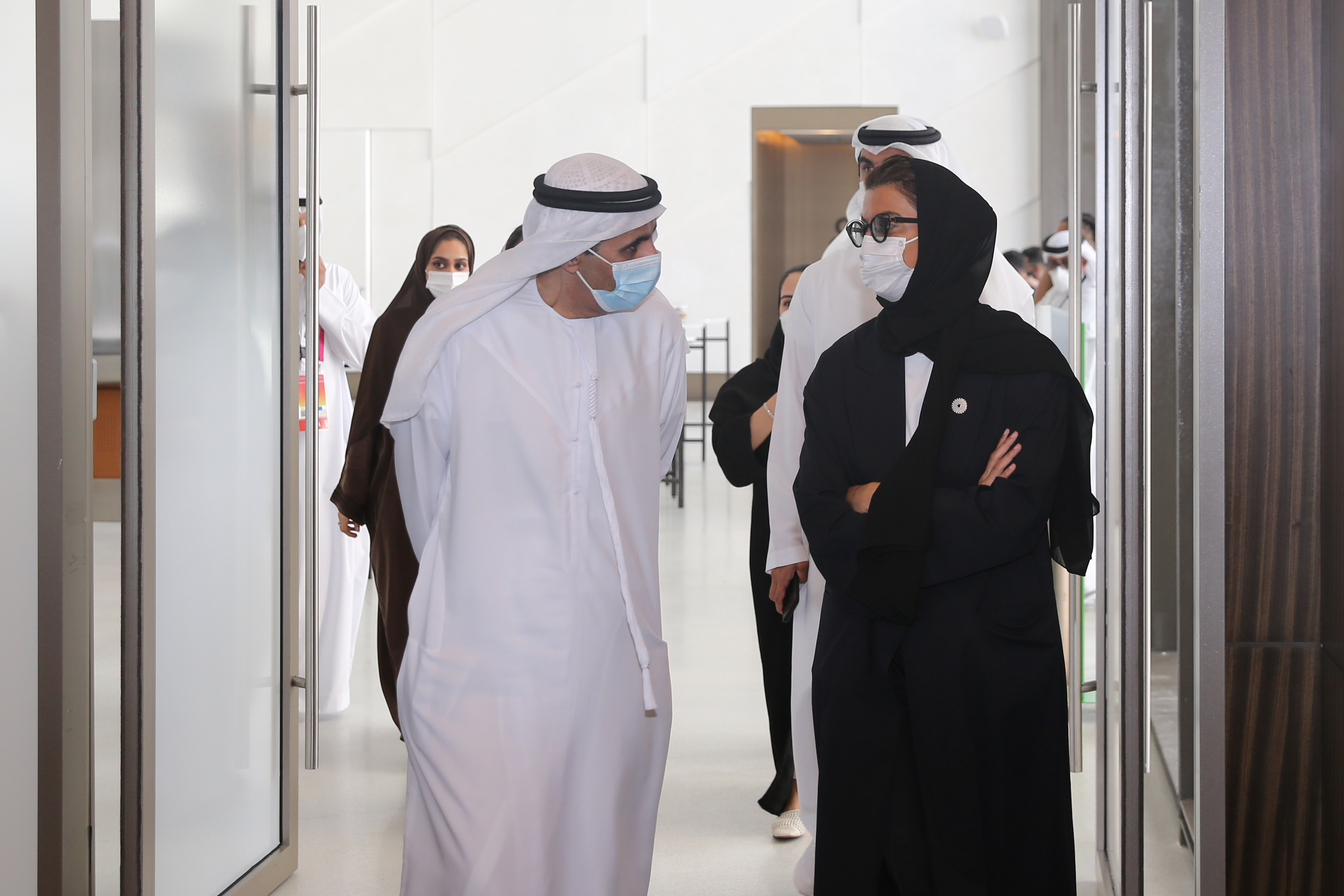Under the theme ‘Arabic, Language of Life’, the event sought to develop new working mechanisms to support the youth and promote the Arabic language
The Abu Dhabi Arabic Language Centre (ALC), part of the Department of Culture and Tourism - Abu Dhabi (DCT Abu Dhabi), organised a cultural retreat ‘Arabic, Language of Life’ at Expo 2020 Dubai, bringing Arabic language experts together with students and youth. This was the first such event to be organised by the ALC in partnership with the UAE Ministry of Culture and Youth.
The workshop sought to educate participants about ALC programmes and projects, designed to advance the Arabic language and foster dialogue and exchange, with wide-ranging discussions helping set the framework for future working mechanisms to support younger generations.
The retreat was attended by HE Noura bint Mohammed Al Kaabi, UAE Minister of Culture and Youth; HE Dr. Hassan Nazim, Minister of Culture, Tourism and Antiquities in Iraq; HE Dr. Ali bin Tamim, ALC Chairman; HE Dr. Mohamed Safi Al Mosteghanemi, Secretary-General of the Arabic Language Academy (ALA) in Sharjah; Dr. Mojeb Al Zahrani, Director General of the Institut du Monde Arabe in Paris; and Saeed Hamdan, Acting Executive Director of the ALC.
The event was moderated by poet and TV presenter Dr. Nadine Al Asaad, and convened several academics and Arabic language experts, namely: Dr. Hanada Taha, Endowed Chair Professor of Arabic Language at Zayed University; Professor Dr. Khalil Al Sheikh, Member of the Sheikh Zayed Book Award Scientific Committee; Dr. Mohammad Ayesh, Head of the Department of Mass Communication at the American University of Sharjah; and Dr. Bilal Orfali, Chairman, Professor, and Sheikh Zayed Chair of Arabic and Islamic Studies, and Chairperson of the Department of Arabic and Near Eastern Languages at the American University of Beirut.
HE Dr. bin Tamim said: “This inaugural cultural retreat was the latest joint initiative undertaken by local and federal entities across the UAE to help shape a better future in preserving, enhancing and promoting the Arabic language, in line with the vision of our wise leadership. The event successfully opened new avenues of dialogue about issues surrounding the Arabic language, and how best to engage our communities, together addressing the challenges that stand in the way of achieving these goals. I am proud to say our bright and talented youth were actively involved in expressing their perspectives on the future of the Arabic language.”
‘Arabic, Language of Life’ explored the Arabic language connection to key industries, including technology, communications, education, content creation, publishing, media, and future planning. It focussed on ways to produce Arabic content that supports the development and growth of these sectors and included brainstorming sessions that engaged experts with the audience.
The retreat produced a valuable set of recommendations. Regarding the Arabic language and education, participants stressed the need to pay attention to applied linguistic challenges and study methods of teaching the Arabic language. In addition, several other focus areas were highlighted, including the importance of conducting research in Arabic, how best to prepare Arabic teachers, the need for a virtual Arabic language environment that appeals to the youth, and how to encourage wider use of the International Certificate for Proficiency in Arabic (CIMA) test, to strengthen the status of the Arabic language.
On the future viability of Arabic, the recommendations emphasised the importance of developing a standardised approach to comparing Arabic with other languages, as well as launching initiatives to simplify access to Arabic content that supports the next generation in skill building. Similarly, participants underscored the need to strengthen youth engagement with Arabic and broaden the language’s functionality and use cases.
Regarding the Arabic language and the media, several key recommendations were made. Arabic language journalism should be strengthened at institutions of higher education, in order to prepare new generations of media professionals able to meet the needs of the sector and its audiences. The presence and availability of quality Arabic intellectual and cultural programming should also be enhanced across radio, television, print and digital media channels, and youth-led Arabic media initiatives need to be supported in order to create constructive models for the language’s future use in media.
The recommendations stemming from the retreat pertaining to the field of communications technology focussed on the need to support non-monopolistic initiatives and projects to build Arabic-enabling technologies and open-source resources. These resources and projects should form a part of an Arabic language technology ecosystem that supports joint ventures between for-profit businesses and research centres to build smart applications in Arabic and creates opportunities for individuals of all ages to contribute to the growth of Arabic communications technology.
Finally, on the topic of the content and publishing industry, the retreat participants recommended launching initiatives and supporting existing publishers focussed on engaging with children, adolescents and youth in ways that appeal to them, while also upholding high standards in terms of the quality and value of the language and content. It was also agreed that publications and literary products need to be made available in a wider array of formats, from audio books and interactive experiences to more traditional paper and electronic formats, in order to better engage all types of audiences with content in Arabic.













